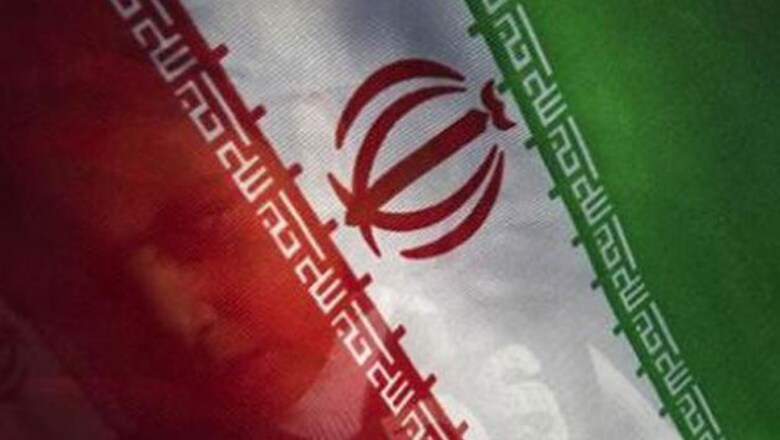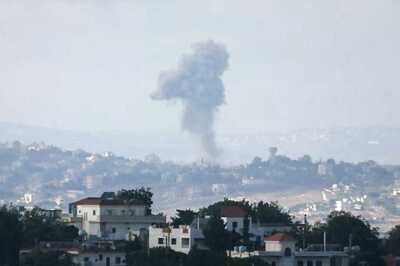
views
United Nations: The UN Security Council is set to impose a new round of sanctions on a defiant Iran on Wednesday over a nuclear program that Western powers suspect is aimed at developing atomic weapons.
The 15-nation council meets at 10.00 am EDT (1400 GMT) to vote on a draft resolution that was the product of five months of talks between the United States, Britain, France, Germany, China and Russia.
The four Western powers had wanted much tougher measures -- some targeting Iran's energy sector -- but Beijing and Moscow worked hard to dilute the steps proposed in a 10-page draft.
US Secretary of State Hillary Clinton said in Ecuador on Tuesday that it would be the "the most significant sanctions Iran has ever faced.
Iran rejects Western allegations that it is seeking nuclear weapons, insisting that its nuclear ambitions are peaceful.
The draft resolution calls for measures against new Iranian banks abroad if a connection to the nuclear or missile programs is suspected, as well as vigilance over transactions with any Iranian bank, including the central bank.
It also would expand a UN arms embargo against Tehran and blacklist three entities controlled by Islamic Republic of Iran Shipping Lines and 15 belonging to the Islamic Revolutionary Guard Corps. The resolution would also set up a cargo inspection regime similar to one in place for North Korea.
US Defense Secretary Robert Gates said on Tuesday that individual states will likely move quickly to pass their own measures that go beyond the UN sanctions.
In addition to the draft resolution is a list of 40 companies to be added to an existing U.N. blacklist of firms whose assets around the world are to be frozen on suspicion of aiding Iran's nuclear or missile programs.
The new blacklist, obtained by Reuters, also includes an individual, Javad Rahiqi, head of an Iranian nuclear center where uranium is processed. His assets will also be frozen and he will face an international travel ban.
The focus of heated last-minute negotiations, the new blacklist on Tuesday morning contained 41 firms, including two banks. By the end of the day China had demanded the deletion of one bank, the Export Development Bank of Iran.
Council diplomats predicted the resolution would pass, though it would likely get only 12 yes votes. Lebanon, they said, would probably abstain, while Turkey and Brazil were seen either abstaining or voting against the resolution.
All five powers with a veto -- the United States, Britain, France, China and Russia -- are expected to vote in favor.
Iran defiant
The first two Iran sanctions resolutions adopted in 2006 and 2007 passed unanimously. The council approved a third set of sanctions in 2008 with 14 yes votes and one abstention.
Three rounds of punitive measures aimed at Iran's nuclear and missile industries have hit its economy hard but failed to persuade Tehran's leadership to halt its nuclear program or come to the negotiating table, analysts say.
Instead, Iran continues to enrich uranium at increasingly higher levels, despite occasional hints of possible military action against its nuclear sites by Israel or Washington.
Iran's UN Ambassador Mohammad Khazaee, in remarks that were distributed by the Iranian mission, said the push for sanctions showed that some countries "prefer confrontation."
"In such a condition, the Islamic Republic of Iran has no choice but to react accordingly in the way it considers appropriate," Khazaee said without giving details.
An Iranian lawmaker said Tehran would reconsider its cooperation with the UN nuclear watchdog if the sanctions went ahead -- a threat Tehran has made before.
Diplomats said US officials were working hard in New York to persuade Turkey and Brazil to abstain from Wednesday's vote, but it was unclear if they would succeed. Lebanon, they say, is unable to support the resolution because the Iranian-backed Lebanese militant group Hezbollah is in the government.
Turkey and Brazil last month revived parts of a UN-backed offer for Tehran to part with 1,200 kg (2,600 pounds) of low enriched uranium in return for special fuel rods for a medical research reactor.
They say the deal removes the need for sanctions and have refused to engage in discussions on the draft resolution. The United States, Britain, France and Germany say the fuel swap deal did nothing to change Tehran's refusal to suspend uranium enrichment in defiance of five Security Council resolutions.
That defiance, Western diplomats say, has added to a growing irritation with Iran in Moscow and Beijing, which remain close trading partners with Tehran.
Iranian President Mahmoud Ahmadinejad admonished Russia at a news conference in Istanbul, where he was attending a summit along with Russian Prime Minister Vladimir Putin, to take care "not to be on the side of the enemies of the Iranian people."














Comments
0 comment